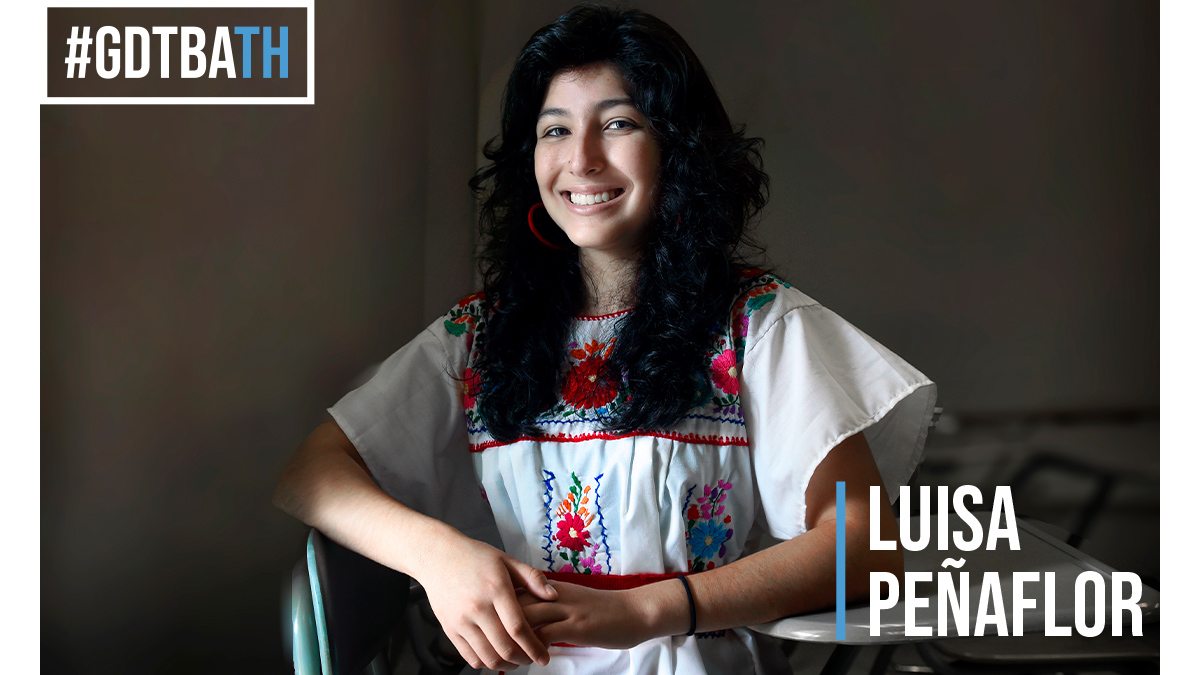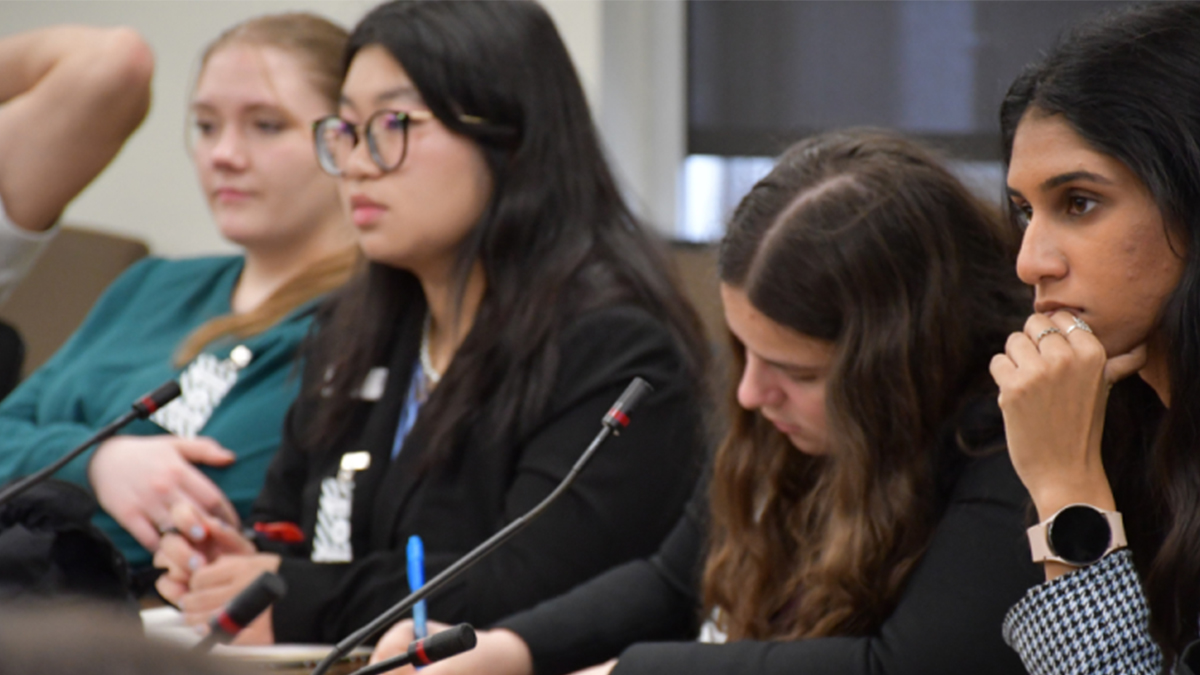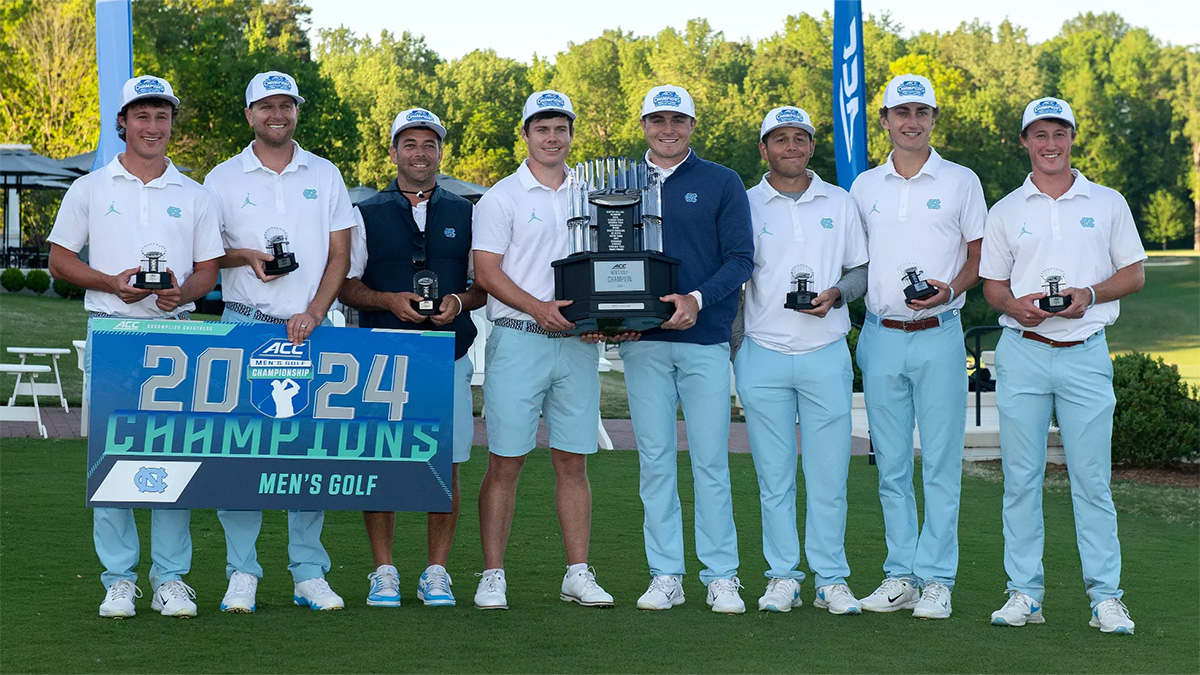#GDTBATH: Luisa Peñaflor
First-year student Luisa Peñaflor has a knack for writing that has already earned her the Thomas Wolfe Scholarship, but at Carolina, she's diving into coursework that is helping take her talents to the next level.

Luisa Peñaflor, a first-year creative writing major from Simpsonville, South Carolina, is the 2021 Thomas Wolfe Scholarship recipient. The full, four-year merit scholarship is awarded to incoming students with exceptionally focused literary ability and promise. Members of the scholarship committee said Peñaflor “seems like a writer whose talent she prefers to keep under the radar — just the sort of applicant this scholarship is intended to track down.”
The College of Arts & Sciences spoke with Peñaflor about her creative writing background and her first-year experience as a Thomas Wolfe Scholar.
What sparked your interest in creative writing?
I’ve been writing ever since I learned how. I don’t really know why I started. I really loved reading when I was little, and my mom would take me to the library every week, and every week I’d read five to10 books. I also got a lot of encouragement from my teachers growing up.
What is your go-to favorite book and why?
It’d have to be either Gabriel García Márquez’s One Hundred Years of Solitude or Hanif Abdurraqib’s They Can’t Kill Us Until They Kill Us. One Hundred Years of Solitude is just so beautifully written and captures the Latin American and human experience wonderfully. Whenever I try to write fiction, I always find myself asking how Márquez would do it; I find myself stopping to admire the language constantly. They Can’t Kill Us Until They Kill Us is a book of essays written about albums, songs and bands that have a lasting cultural impact. It was the first book that showed me that creative essays are an option in the field of creative writing, and I return to it over and over again in admiration and comfort.
What genre are you most drawn to and why?
I am most drawn to poetry. The efficiency in which I can describe what I am trying to get across is exciting to me, and poetry is simply vibrant in the way it focuses on its language as if it is under a microscope.
What are you currently inspired by since being on campus? Have you found a go-to writing spot?
I am currently inspired by my family. Being in a new environment has really made me treasure the memories of my childhood, and being able to write about that from a new era in my life has given me a sense of reflection I didn’t have before. My go-to writing spot is usually the room next to the printers in the UL, or the individual desks on the first floor of Davis. As long as I feel comfortable in a space, where I can sit and have room for my notebook and laptop, I can write.
How do you feel about winning the Thomas Wolfe Scholarship? Are you looking forward to connecting with other Thomas Wolfe Scholars?
I am beyond thrilled to have won the Thomas Wolfe Scholarship. I had just parked after getting home from high school when I got a phone call from one of the co-directors for the scholarship. She asked me about my day, and even then I wasn’t sure I’d get the scholarship. And then she said that I had won it. As cheesy as it is, I couldn’t believe it. I walked into my house, told my mom and we both started crying. It was definitely one of the best moments of my life. Funnily enough, I’ve already met most of the Thomas Wolfe Scholars; I was on a bus with one, I have a class with another, and I’m in a club with the last one. The ones I’ve met are really amazing people who have been so kind and helpful.
What advice would you give to aspiring creative writers?
Always say yes. Take advantage of all the opportunities in front of you. Saying yes will help you accumulate experience, make connections, and further your understanding of both others’ work and your own.
Tell us about some of your writing classes this semester.
This semester I am taking “Intro to Creative Non-Fiction” with Stephanie Elizondo Griest. I highly recommend her as a professor. She is brilliant, really knowledgeable about her field, and passionate about her student’s work. I’ve written creative nonfiction before, but this class delves deeply into it. I’ve learned so many forms a creative essay can take, and I’ve already written more creative nonfiction than I did my last two years of high school.




